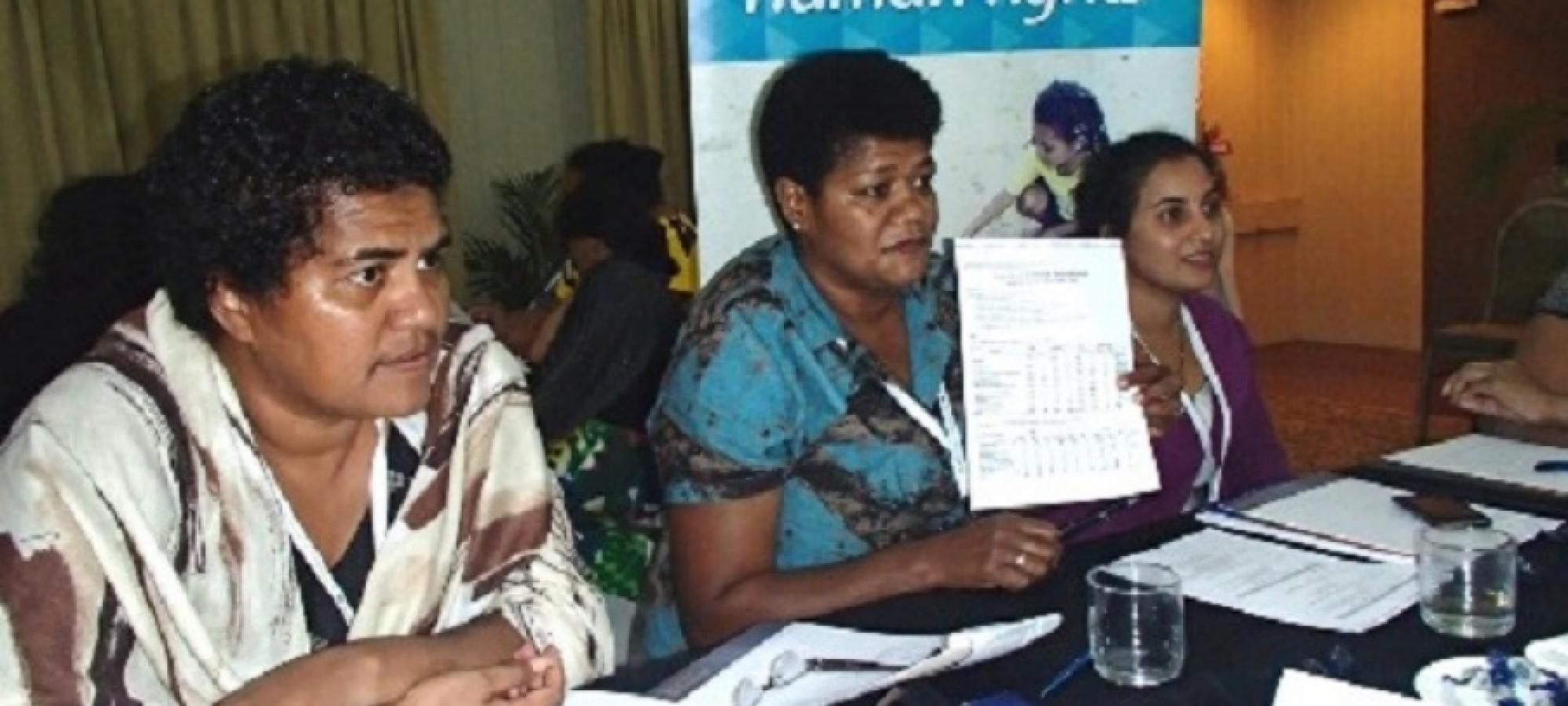
Wednesday 13 August 2014, Secretariat of the Pacific Community (SPC), Nadi, Fiji –
In recent years, Pacific Island governments, as signatories to various international human rights conventions, are required to submit a growing number of reports on their human rights performance. Reporting is a critical process, as it monitors what is being done in each country to promote, respect and advance human rights for all citizens.
For most countries in the region, however, compiling these reports is a challenge, and many reports are overdue. While there are several reasons for this, a primary one is accessing relevant data. With better statistics, human rights reporting will carry more weight and improve the understanding of governments on the issues. Ultimately, this should lead to budgetary allocations where they are needed most: improving the lives of everyone.
The Secretariat of the Pacific Community (SPC) is in the process of addressing this, in response to requests from Pacific Island states for assistance.
In partnership with the Pacific Islands Forum Secretariat (PIFS), and with generous funding from the European Union, SPC's Regional Rights Resource Team (RRRT) developed a statistical indicator toolkit for human rights reporting in the Pacific. The toolkit seeks to address the issue of accessing data by providing clear advice and guidance on what human rights statistical information is required in the commonly ratified human rights convention reports, and where that information can be found within the region and nationally.
Last week, a Pacific regional workshop on gender and human rights reporting was held in Nadi, Fiji. Organised by SPC and the UN Statistics Division with support from other regional partners, statisticians, human rights focal officers and representatives of national women’s ministries from 13 countries reviewed the statistical indicator toolkit.
The workshop participants examined the range of statistical indicators that are used to measure progress towards international human rights standards across development sectors, including health, education, employment and judicial services. The participants discussed the need for basic information, which both monitors progress and informs the development of policies and laws at the national level.
'The reporting guide [toolkit] will be a great resource to assist us with the collection of relevant data for our reports. It has been challenging for us to write our Convention on the Rights of the Child, Convention on the Elimination of Discrimination Against Women and Convention on the Rights of Persons with Disabilities reports because we have not been collecting enough data or the required data. But it is important for us to capture the real issues in order to help our government understand the realities on the ground. This way we hope that resources will be allocated where the needs are greatest,' said Mark Esron Vano, Women’s Economic Officer in the Vanuatu Department of Women’s Affairs.
There was strong acknowledgement of the need for data and statistics to be accessible and available. Some ways to improve this were identified as building close relationships between national statistics offices and relevant ministries and agencies of the government; making data available online and/or in a centralised location; and establishing national coordinating bodies.
For the Tongan delegation, awareness at the national level with all relevant ministries and committees is a critical next step to getting everyone working together and in the right direction in terms of data collection, analysis and use.
'Our plan is to conduct sessions with relevant ministries that are collecting data in Tonga, like the police, the Ministry of Health and Education, NGOs, as well as national committees that oversee data collection, such as the National Census Steering Committee, to introduce the new gender and human rights indicators. This will help us collect the relevant data to give us an accurate picture of human rights and gender equality in Tonga,' said Polotu Paunga, Deputy CEO for Tonga’s Women's Division, Ministry of Internal Affairs.
The development of the toolkit was funded by the European Union through the Project 'Assistance towards increasing the rate of Pacific Islands' ratification and implementation of international human rights treaties', implemented by PIFS in partnership with SPC, the Office of the High Commissioner for Human Rights and other development partners.
Regional partners supporting the workshop include UNICEF, PIFS, the United Nations Population Fund and the International Labour Organization.
For more information, contact Jilda Shem, SPC RRRT Communications Officer on +679 330 5994 or email [email protected].
Photo caption: Fiji participants at the gender statistics and human rights reporting workshop in Nadi last week



